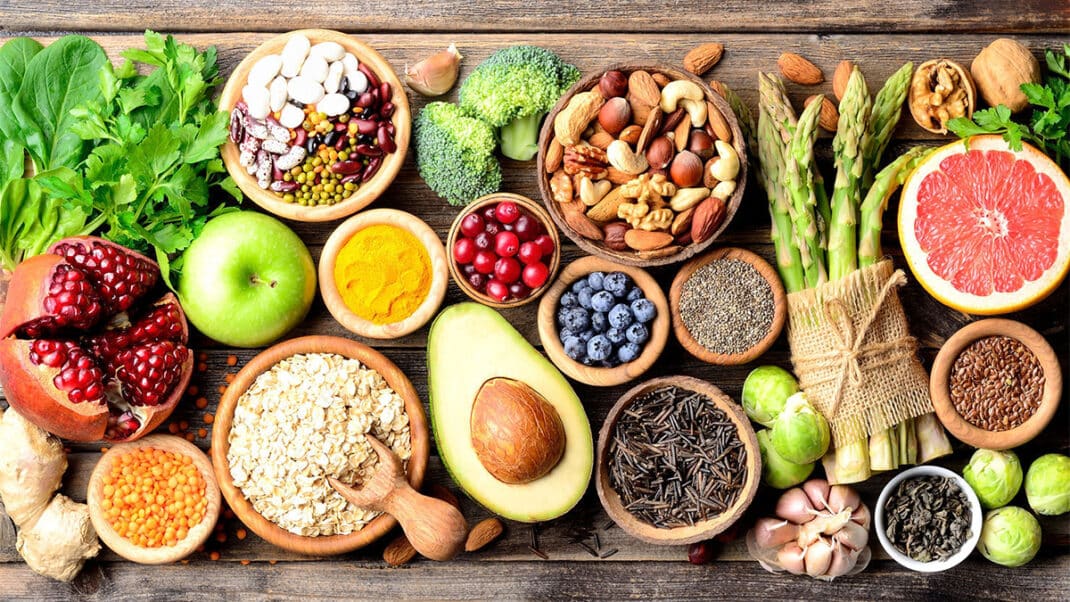Fueling Your Mind to Fuel Your Body
Nutrition for Brain Health

In the world of fitness and performance, we often focus on fueling our bodies. But what about our brains? As science continues to uncover the profound connection between nutrition and mental function, fitness enthusiasts are turning their attention to foods and supplements that support memory, mood, cognition, and long-term brain health. Whether you’re training for a competition, optimizing daily focus, or looking to protect your brain as you age, the right nutrients can make a measurable difference.
This article explores the latest findings on brain-boosting nutrition, highlights key foods and supplements, and offers practical strategies to help you nourish both body and mind.
Why Brain Health Matters in Fitness
Cognitive sharpness, emotional regulation, reaction time, and motivation all stem from the brain. For athletes and active individuals, the ability to stay mentally focused during long workouts, manage stress, and recover from fatigue is essential. Furthermore, long-term brain health is increasingly important as more people recognize the impact of chronic inflammation, stress, and aging on mental function (Gomez-Pinilla, 2008).
Nutrition influences the brain through several pathways:
- Supporting neurotransmitter production
- Reducing oxidative stress and inflammation
- Enhancing mitochondrial function
- Improving blood flow and nutrient delivery to the brain
Key Nutrients for Brain Health
- Omega-3 Fatty Acids (DHA & EPA)
Omega-3s are essential fats found in fatty fish like salmon, sardines, and mackerel. DHA, in particular, is a structural component of brain cells and plays a critical role in synaptic plasticity, which affects learning and memory.
Studies show that omega-3 supplementation can reduce age-related cognitive decline and improve mood disorders like depression (Freeman et al., 2006). EPA also contributes to lowering neuroinflammation, making it especially useful in supporting recovery and resilience.
Sources: Salmon, anchovies, fish oil supplements, algae oil (for plant-based options).
- Magnesium
Magnesium is involved in over 300 enzymatic reactions, many of which support nervous system function. It plays a key role in regulating NMDA receptors, which are crucial for learning and memory (Barbagallo & Dominguez, 2010).
Low magnesium levels are linked with increased risk of anxiety, depression, and impaired focus. Athletes may lose magnesium through sweat, making supplementation or magnesium-rich foods especially important.
Sources: Leafy greens, almonds, black beans, dark chocolate, magnesium glycinate supplements.
- Polyphenols
Polyphenols are powerful plant compounds with antioxidant and anti-inflammatory effects. They protect brain cells from damage and support communication between neurons.
Flavonoids, a subgroup of polyphenols found in berries, tea, and dark chocolate, have been associated with improved cognitive function and reduced risk of neurodegenerative disease (Spencer, 2010).
Sources: Blueberries, green tea, red grapes, cocoa, turmeric.
Functional Supplements for Mental Performance
- Lion’s Mane Mushroom
Lion’s mane (Hericium erinaceus) is a medicinal mushroom known for its neuroregenerative properties. Research indicates that lion’s mane can stimulate nerve growth factor (NGF), a protein involved in the growth and maintenance of neurons (Mori et al., 2009).
Benefits: Improved focus, reduced mild cognitive impairment, support for brain repair.
- Nootropic Blends
Nootropics are substances that enhance cognitive performance. Blends may include ingredients like L-theanine (from green tea), caffeine, bacopa monnieri, and rhodiola rosea. These compounds are popular among athletes and high performers seeking improved mental clarity and endurance.
Benefits: Enhanced attention, reduced brain fog, improved reaction time.
- DHA/EPA Supplements
For those who don’t consume enough fatty fish, high-quality omega-3 supplements provide concentrated doses of DHA and EPA. Algae-based options are ideal for vegetarians and vegans.
Tip: Look for third-party tested brands to ensure purity and potency.
Nutrition Strategies for Brain Optimization
- Eat the rainbow: Variety in fruits and vegetables ensures broad-spectrum antioxidants and polyphenols.
- Balance your fats: Reduce omega-6-rich processed foods and prioritize omega-3s.
- Stay hydrated: Dehydration impairs concentration and memory. Aim for at least half your body weight in ounces of water daily.
- Time your carbs: Moderate, complex carbs fuel brain activity, especially around workouts. Include whole grains, sweet potatoes, and legumes.
- Include protein at each meal: Amino acids are the building blocks of neurotransmitters like dopamine and serotonin.
Lifestyle Synergy: Beyond Food
To maximize the effects of nutrition, integrate brain-supportive lifestyle habits:
- Exercise regularly: Physical activity increases BDNF (brain-derived neurotrophic factor), a key player in neuroplasticity.
- Prioritize sleep: Sleep is critical for memory consolidation and brain detoxification.
- Manage stress: Chronic stress impairs cognition; include mindfulness, yoga, or breathing practices.
and finally…
For fitness enthusiasts, brain health is not a luxury—it’s a performance necessity. By incorporating omega-3s, magnesium, polyphenol-rich foods, and targeted supplements, you can sharpen your focus, boost your mood, and support long-term cognitive resilience. Just like you train your muscles, your brain needs strategic fuel and care.
Elevate your training by feeding your most powerful organ—your mind.
References
Barbagallo, M., & Dominguez, L. J. (2010). Magnesium and aging. Current Pharmaceutical Design, 16(7), 832–839. https://doi.org/10.2174/138161210790883615
Freeman, M. P., Hibbeln, J. R., Wisner, K. L., Davis, J. M., Mischoulon, D., Peet, M., … & Stoll, A. L. (2006). Omega-3 fatty acids: Evidence basis for treatment and future research in psychiatry. Journal of Clinical Psychiatry, 67(12), 1954–1967.
Gomez-Pinilla, F. (2008). Brain foods: The effects of nutrients on brain function. Nature Reviews Neuroscience, 9(7), 568–588. https://doi.org/10.1038/nrn2421
Mori, K., Inatomi, S., Ouchi, K., Azumi, Y., & Tuchida, T. (2009). Improving effects of the mushroom Yamabushitake (Hericium erinaceus) on mild cognitive impairment: A double-blind placebo-controlled clinical trial. Phytotherapy Research, 23(3), 367–372. https://doi.org/10.1002/ptr.2634
Spencer, J. P. E. (2010). The impact of fruit flavonoids on memory and cognition. British Journal of Nutrition, 104(S3), S40–S47. https://doi.org/10.1017/S0007114510003934


